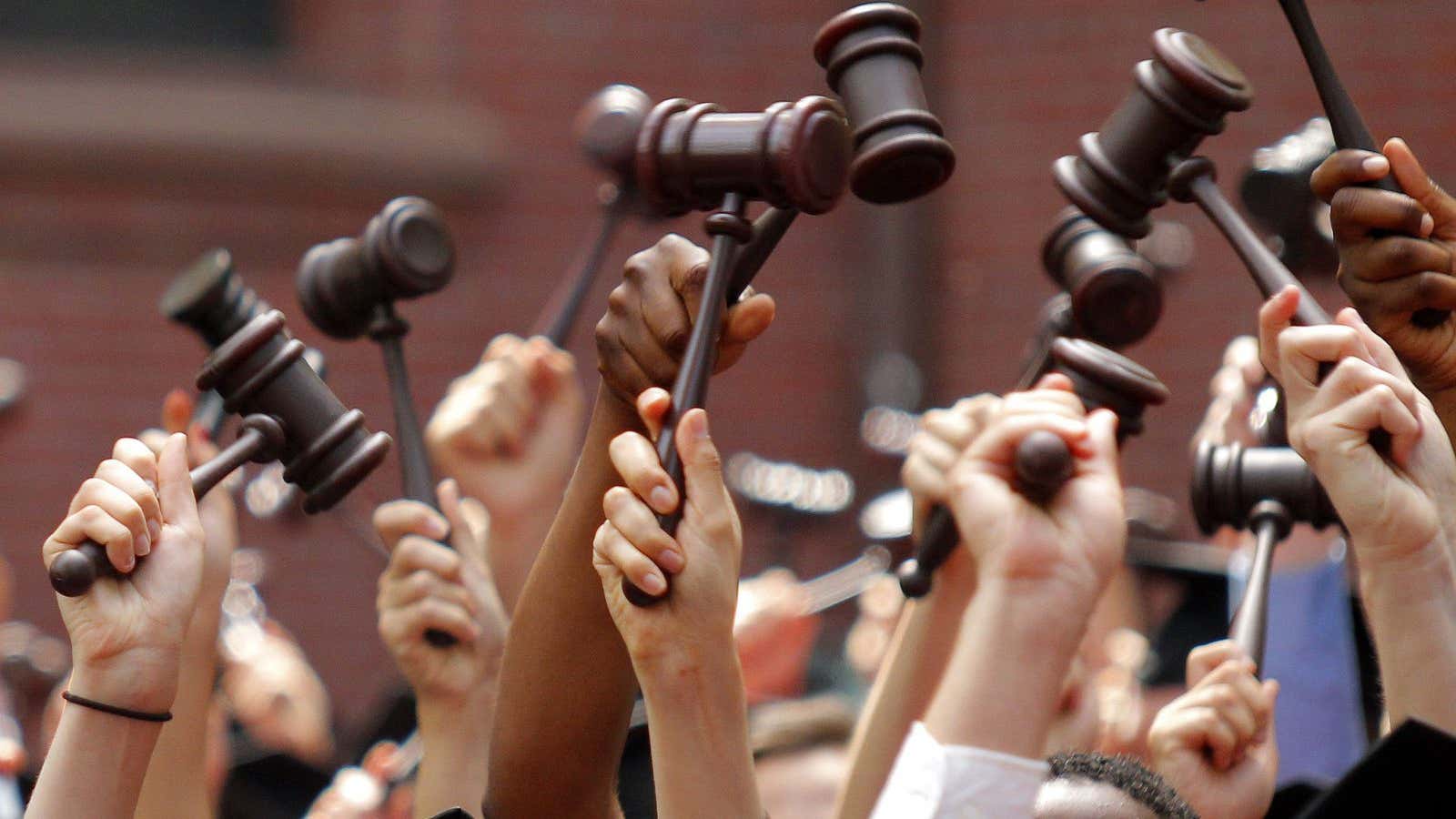The US Department of Education ‘s Office for Civil Rights (OCR) has concluded its four-year investigation into Harvard Law School, and found that the school violated Title IX, a part of the Education Amendments of 1972 that prohibits schools receiving federal funds from discriminating on the basis of gender—including how they address students’ sexual assault complaints.
Investigators found a number of violations, including a lack of training and timeliness, and procedural flaws.
Until recently, the law school allowed a student to dispute a disciplinary decision in a separate supplementary hearing, with witnesses. The complainant had no rights in these proceedings, but the school was able to reverse its findings and earlier decision to expel, or discipline the student, according to the Department of Education investigation (pdf), released Dec. 30.
The department also found that the administrative board making some of these decisions may not have been adequately trained for its role—their training consisted of receiving a copy of the relevant laws, and the Department of Education’s previous sexual harassment guidance.
The department reviewed the two sexual assault cases filed with the law school since 2005. In one, they found that a student accused of sexual assault had benefited from a one-sided post-hearing. From the report:
“[T]he complainant was excluded from participation in any review of the outcome beyond the [Administrative] Board’s decision. Specifically, the respondent-student benefited from a supplemental hearing with representation by counsel and was allowed to provide testimony; the supplemental hearing and faculty review resulted in the reversal of the decision to dismiss the student. As a result, the Law School failed to provide an equal opportunity for both parties to participate in the posthearing review of the Ad Board’s recommended sanctions for the accused student, and, as such, the complainant was not provided an adequate, reliable and impartial investigation of that sexual assault complaint.”
New rules, some of which the law school has already adopted, require that both parties have equal rights to present witnesses and relevant evidence during proceedings. According to procedures that have been in place at the law school since September (pdf), “In reviewing the Board’s disciplinary decision, the Committee must accept the findings and conclusions contained in the Final Report,” unless that finding was “clearly erroneous” or the decision was an “abuse of discretion.” The law school adopted a more updated policy in December, but this is currently under review by the OCR, and not publicly available.
Since the investigation was launched, in 2010, the OCR has released updated guidelines—once in 2011 (pdf) and again in 2014 (pdf). In the past year, the federal government has also made a big push toward improving campus responses to sexual assault, with about 90 colleges currently under investigation.
There is a separate, pending investigation into Harvard College, which has not been resolved.
Before the current school year, colleges within Harvard University dealt with disciplinary action separately, according to the DOE findings. In July, administrators released a university-wide sexual harassment policy, which adopted many of the Title IX guidelines, but it was met with backlash from some faculty, especially because the university downgraded the requirements for sanctions from “clear and convincing evidence” to “preponderance of evidence,” which lowered the standards for disciplining a student.
As part of the resolution agreement (pdf) with the Department of Education, Harvard Law School must review any sexual harassment complaints received in the last two academic years for misconduct, provide necessary training and climate assessments, and revise its Title IX guidance to make student rights and the school’s responsibilities clearer.
“We will continue to build upon the work we have done in recent months,” Harvard Law School Dean Martha Minow wrote in a statement to the school’s community. “There will be surveys and discussion.”




